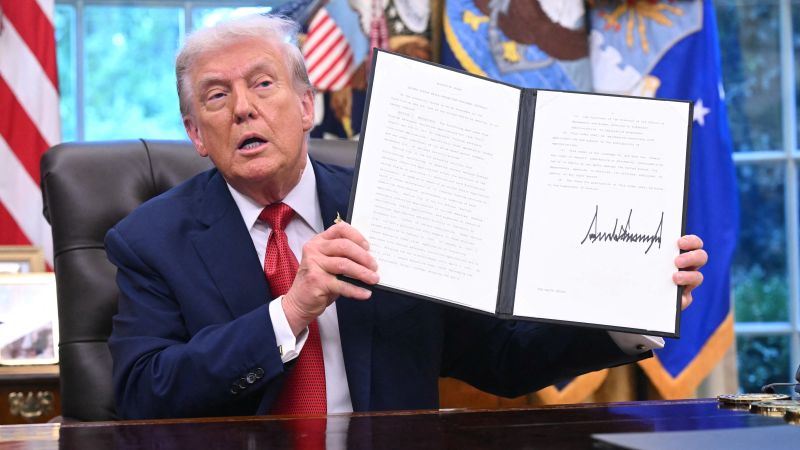In a high-profile decision intertwining national security and economic policy, U.S. President Donald Trump has signed an executive order approving a $14 billion deal to transfer TikTok’s U.S. operations from Chinese parent company ByteDance into American hands.
The agreement averts a threatened nationwide ban on the video-sharing app, which counts more than 170 million U.S. users, and marks a major step in the ongoing U.S.-China technology standoff.
The Deal Structure
Under the transaction, ByteDance will retain a 20% minority stake while licensing its proprietary recommendation algorithm to the newly formed TikTok USA Inc. for an undisclosed fee.
The remaining 80% stake is controlled by a U.S.-led consortium that includes:
- Oracle (40%)
- Walmart (20%)
- Private equity investors such as Blackstone
- A group linked to former Commerce Secretary Wilbur Ross
The consortium has pledged significant investment in U.S.-based data centers, content moderation operations, and AI development hubs, aiming to bolster both security and employment. TikTok USA is projected to create 10,000 U.S. jobs.
Trump: A Victory for “America First”
President Trump hailed the deal as a vindication of his “America First” trade strategy, directly linking it to his administration’s decision to raise tariffs on Chinese imports, including electronics and semiconductors, to 60%.
“This agreement protects U.S. national security, keeps American data safe, and ensures TikTok continues for millions of users,” Trump said. “ByteDance maintains a small stake, but the control is American. It’s a win for security, for jobs, and for fairness.”
Regulatory Path Ahead
The deal still requires regulatory approval from both the Committee on Foreign Investment in the United States (CFIUS) and China’s commerce ministry, with a 60-day review window. Analysts caution that Beijing’s response will be critical, as it could view the forced divestment as a precedent in the growing trend of tech decoupling.
Implications for U.S.-China Tech Rivalry
Analysts say the transaction sets a landmark precedent for how the U.S. could handle foreign-owned technology platforms deemed security risks. By balancing national security with investor interests and consumer access, the deal may shape the future of U.S.-China economic relations.
“This is not just about TikTok,” said one Washington-based technology analyst. “It signals how far the U.S. is prepared to go in reshaping the tech landscape to limit Chinese influence.”
With approval pending, TikTok’s U.S. operations now face a delicate transition, one that could redefine global norms around technology governance, data sovereignty, and foreign investment.

